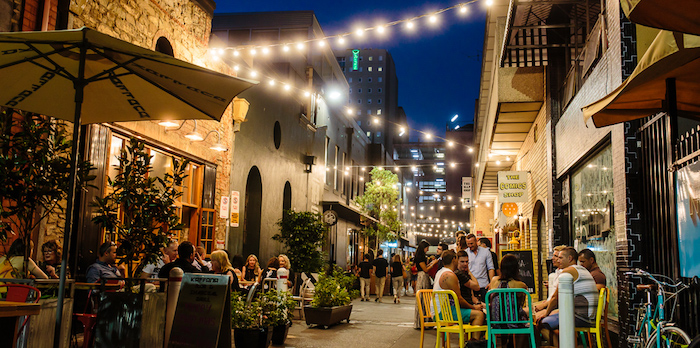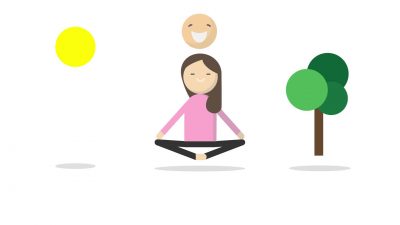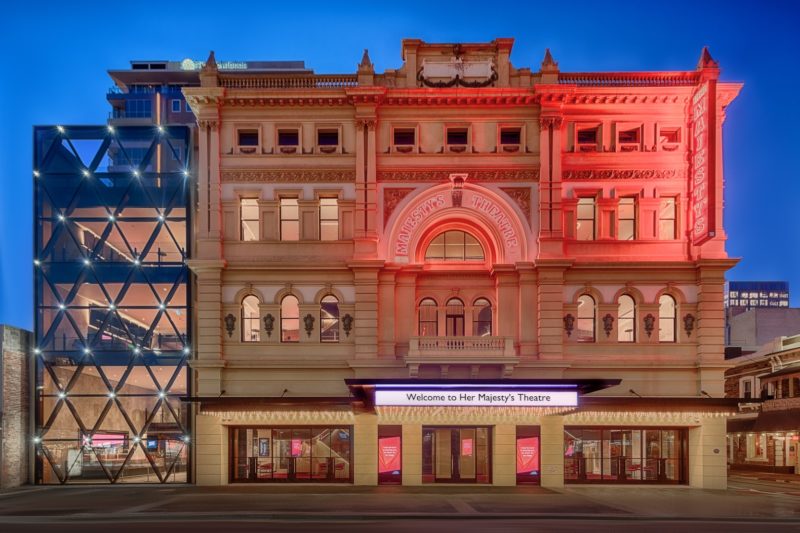Nurturing South Australia’s lifestyle as an economic asset
Life can be tough living in big cities and this year things became even harder. Fears surround how the world’s big cities from New York to Melbourne will survive, and even are they still relevant? Likely businesses will rebound, but there will likely be a continued search for better.
Read more succinct version on InDaily here >
Adelaide and smaller towns across South Australia have prospered comparatively well this year, and life has largely returned to a resemblance of the old norm. There is a sense of psychological safety and happiness amongst South Australians. Such a contrast to the horrible year generally across the world. In South Australia, many tourism operators are experiencing record booking levels, and restaurants are heightened demand for the limited places. With a positive local mood, the community is keen to get out and enjoy life.
South Australia is unique from a global perspective. A capital city with a population of 1.2 Million, with a total State population of only 1.7 Million, on a land size 152% the size of France, only 3% of the population. We perform well on the world-stage for food, and wine to science, yet with a small population geographically isolated from the rest of the world, economic challenges seem to ever remain. Our arts, sport, beaches and national parks are worth envying, yet don’t seem to provide the direct return economic rationalist may demand.
2020 has been a year of re-thinking, and now with lockdowns and deaths growing in many parts of the world, South Australia has opportunity to build a bridge between our happy lifestyle and economic prosperity. An enviable place to live, work and visit.
South Australians are enjoying a generally buoyant mood according to Square Holes’ monitoring. In the latest data collected at the end of September / early October 45% indicated they were confident, and a further 35% neutral. With this South Australians are feeling financially optimistic, with a record low of only 16% believing they will be financially worse in 12 months-time, 84% believe their financial security will be the same or better.
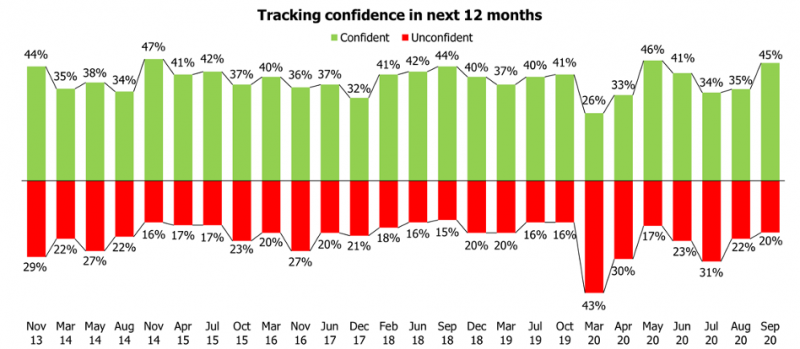
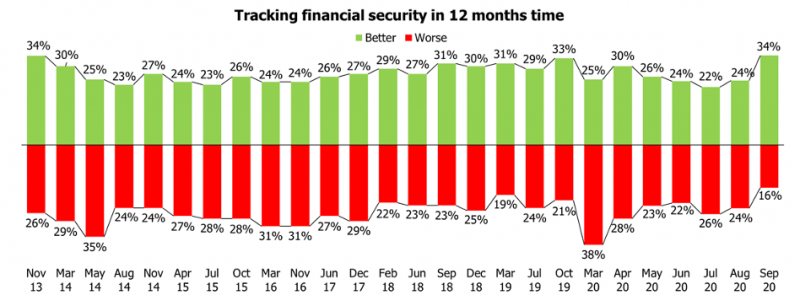
As reported back in Square Holes’ previous mind and mood summaries, the sense of pride of South Australians is up on five years ago and there is strong support for how our leaders have tackled 2020 comparative to elsewhere. Mental health has continued to grow in South Australia.
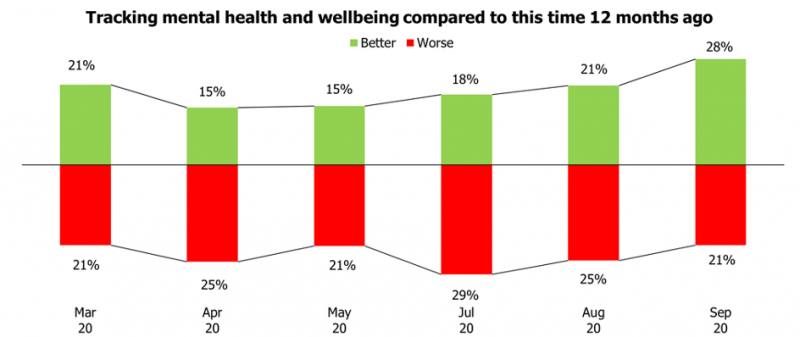
From the latest mind and mood research, most South Australians are succeeding in their pursuit of happiness with 77% indicating they are ‘happy’ living in SA.
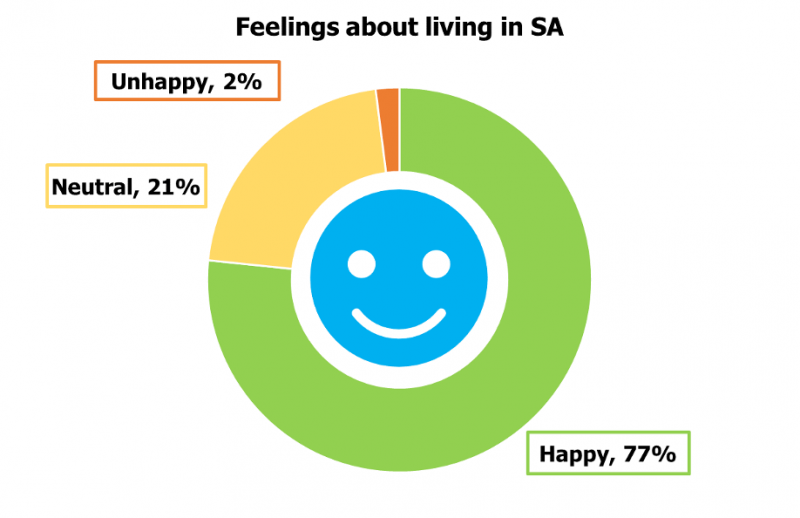
A sense of ‘happy’ pervades across age groups.
Females report to be happier than males, and older age groups more so than those younger, yet even so, three-quarters of 18-34 year olds note that they feel happy living in South Australia.
There is a general sense of easy lifestyle and closeness to wineries, good beaches, festivals, and a friendly environment were noted. Closeness to family is also noted as reason to be happy.
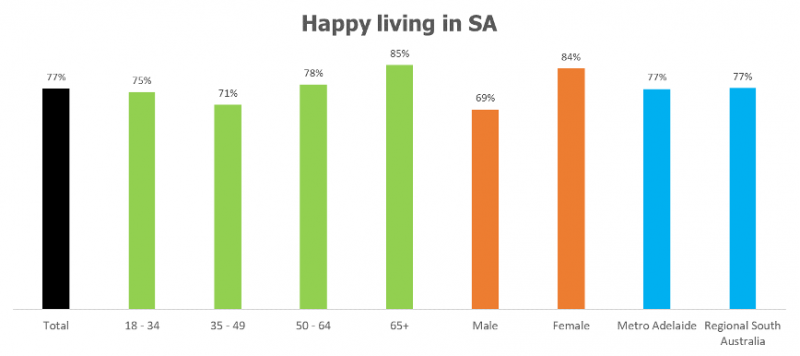
Of the 400 people surveyed, only eight indicated that they were unhappy living in South Australia, mainly because they felt it was “boring with nothing to see or do.” This is a clear minority view.
With happy comes a sense of well-being, with seven in ten noting positive wellbeing living in South Australia. Our local fruit, vegetables, fresh air and strong sense of community were noted as reasons.
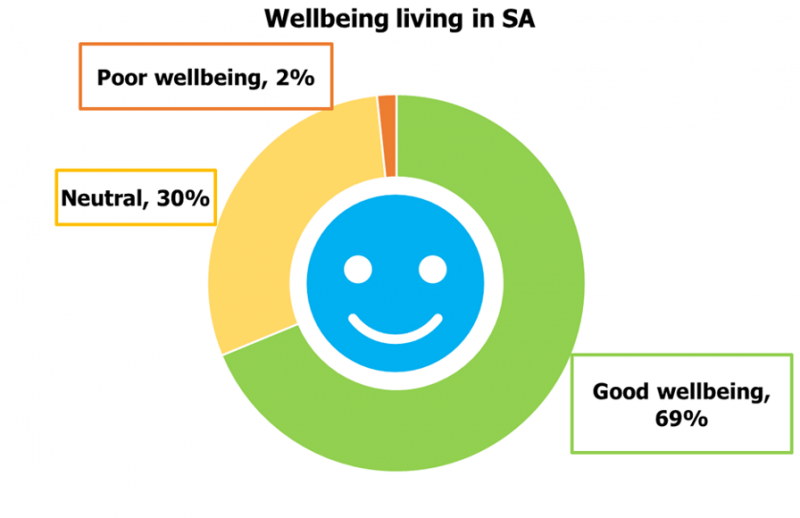
“Good community support and mateship” 18-34 year old
“Clean, green and everything in between” 35-49 year old
“Cost of living is good and we have a pleasant beautiful environment” 50-64 year old
“We have plenty of wholesome fruit and vegetables that are grown in South Australia. Healthy food helps to prevent many illnesses.” 65+ year old
Wellbeing is consistently strong across age groups and regional and metropolitan areas of South Australia, yet strongest for those aged 65+ and females.
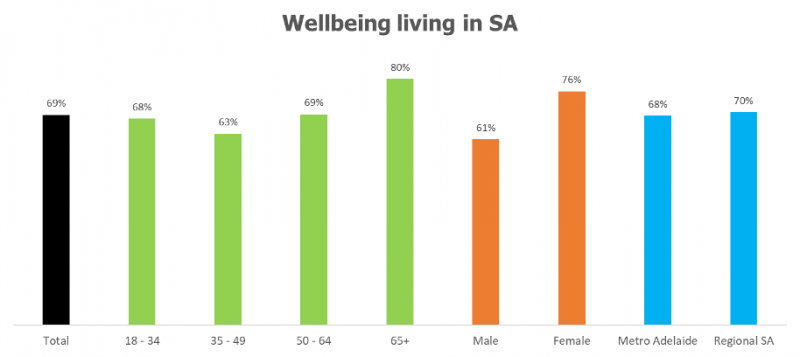
The four people from overall sample of 400 noting reasons for their wellbeing being poor referred to unemployment, a desire for improved rural health services and a sense they’d just be happier elsewhere.
There is much to celebrate in South Australia, a strong sense of pride at how well we conquered a challenging year globally. Much to be happy about and enhance our sense of wellbeing.
Life Is good South Australia! Why would anyone wish to live anywhere else?
Yet life is more complex and economic fragility lingers in South Australia. As reported in previous mind and mood pieces, South Australians rate culture and lifestyle aspects strong, yet view our economy and jobs as consistently floundering, either in reality or perception.
Ratings of culture and lifestyle – food and drink, natural environment, and arts – tend to perform well, yet employment and economy poorly, even if there is indication of improvement since 2015. Much of the challenge for South Australia is bridging the lifestyle and economic divide. An opportunity exists in closing the gap between our economic cultural benefits of South Australia.
Rather than viewing the cultural aspects of South Australia as needing to drive economic value to justify their existence, perhaps the answer is that the economic value of our arts, national parks, beaches et cetera is the value they place on being a great place to live, work and visit.
From Square Holes’ most recent mind and mood research, South Australians respect the economic value of our lifestyle and cultural assets. Our arts festivals and major events; parks, national parks and green spaces; beaches and coastal areas; and museums and art galleries were all viewed as both highly economically and culturally important to South Australia.
Importantly all ten ‘cultural’ aspects of South Australia were also acknowledged as highly economically Important to the State by 75%+ of South Australians.
The existence of such aspects of South Australia were viewed as key economic assets, and something to be nurtured and protected by the Government and wider community. Rather than taking an economic rationalist perspective as can be the default in challenging times, it is viewed as important to respect that without the cultural aspects of South Australia, the economic foundation such as am ideal place to live, work and visit are diminished.
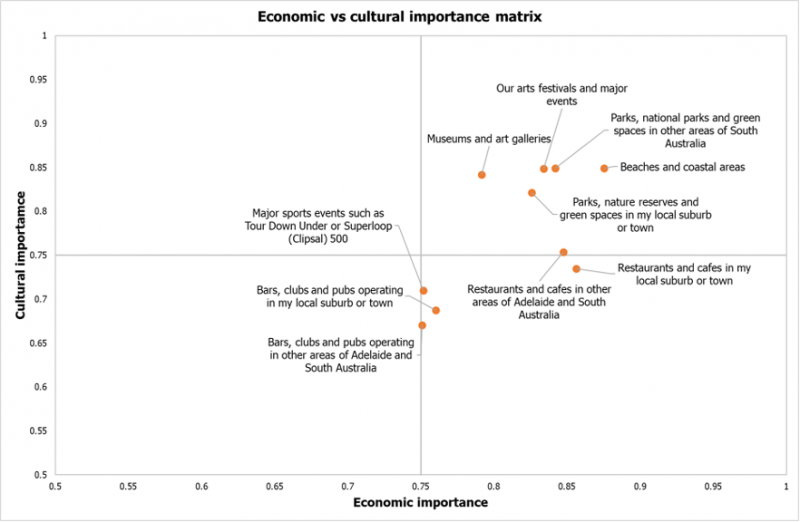
This is generally consistent across age groups, although 18-34 attribute less economic and cultural importance across the 10 factors.
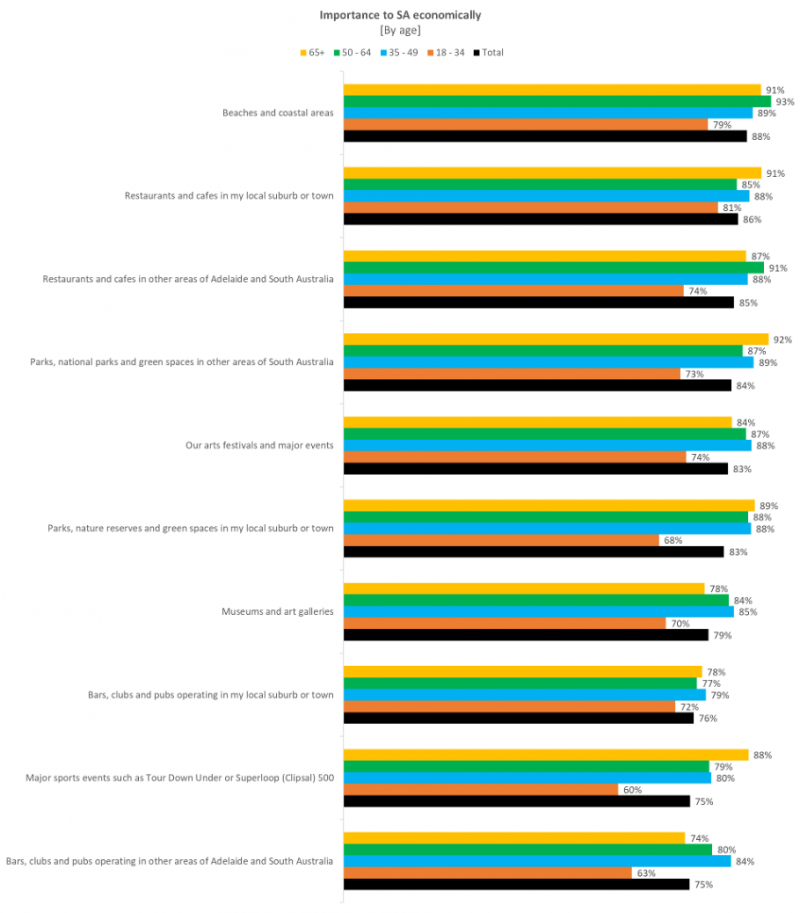
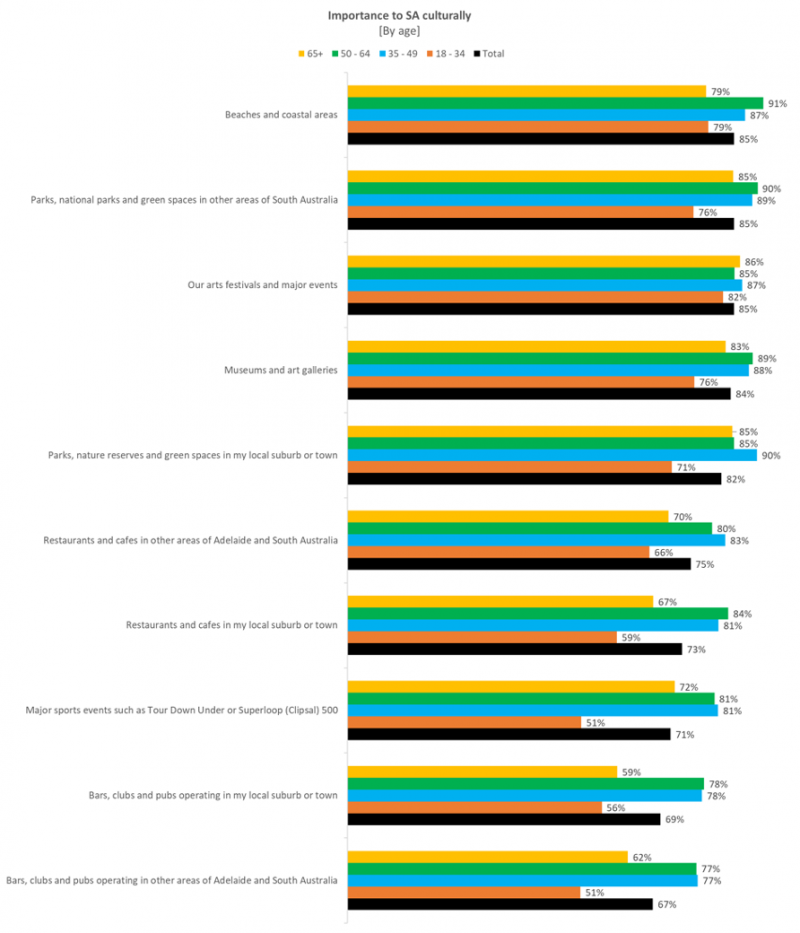
Economic and cultural impact is a key measure used by government and other stakeholders of the value contributed by our arts, sport and other festivals and major events. Typically, this is weighted towards additional economic value through spending to the festival and wider economy from interstate and overseas visitors, that would not have been otherwise generated.
From survey and other data, an overall economic impact figure is calculated, with preference that each repeat of said festival the economic impact indicates strong growth. It will less likely to attract growing or even stable economic impact for the foreseeable future, with travel restrictions from interstate and overseas likely to remain well into the uncertain future. Hence why our festivals and events are only starting to return in quite a different form to previously.
Some consideration is also given to the cultural impact on South Australia, such as a better place to live, exposure to new artforms, extending business and other networks, yet generally the major focus is on economic impact. There is opportunity to rethink South Australia’s expectations on our cultural aspects.
Perhaps a longer-term bipartisan strategy focused on doubling down on our cultural aspects as a path to building South Australia’s appeal as a place to live, work and visit. As a place to attract the best and brightest to live and work. To continue to attract tourists to our cultural assets.
Historically the relatively small diffusely populated South Australia and our geographic isolation have been major impediments to cultural and economic growth. Placing negative pressure on mental health and economic mood. Yet, 2020 is the year when everything changed globally.
Work from home will likely never fully revert to work from office. More and more companies are allowing their teams to work from anywhere, and many are choosing to do so from Adelaide and wider South Australia based on our enviable lifestyle and unique cultural benefits.
It is likely time to rethink the economic value of our enviable lifestyle and cultural aspects. Rather than viewing the positive cultural aspects of South Australia as needing to generate return and growth, a greater strategic commitment to growing our unique cultural assets is likely prudent as a medium to longer term path to sustained economic impact.
